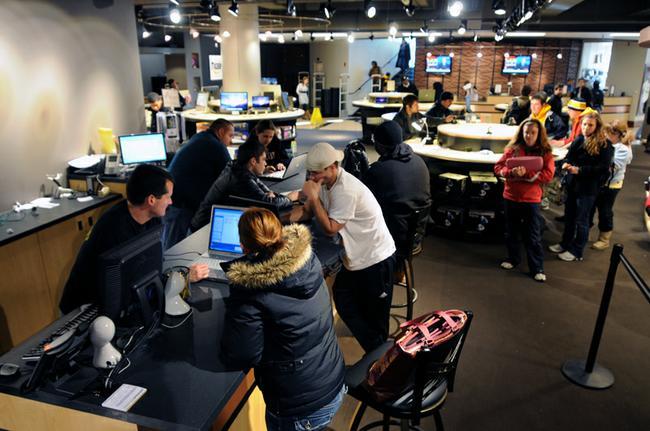For college students today, the Internet is an integral part of succeeding in class, from using Blackboard to sending and receiving emails from faculty members.
With enrollment at MU the highest it has ever been, the Division of Information Technology has been working to handle this increase of students. Ranging from Ellis Library, the Student Center and any location where a class is held, wireless Internet is readily available.
Some students across MU’s campus have felt that the school’s Wi-Fi has been less reliable since returning from the winter holiday. For some, Internet access for the spring semester is not measuring up to expectations thus far.
“I think it’s ridiculous,” freshman Danielle Baker said about the wireless service she has received. “Especially the way grades are set up at Mizzou, you have to have the Internet to successfully perform in your classes, and the fact that I can’t get Internet a lot is ridiculous. When I do get it, sometimes it’s really slow and doesn’t work right. As much as I pay for tuition, I should be able to use the Internet at all times, especially when it’s required for a class.”
Baker isn’t the only one who feels this way, though some students think the system has continued to have issues dating back to the fall semester.
According to the DoIT website, Mizzou Wireless provides Internet access to roughly 90 percent of the campus in both classrooms and outdoors. For residence halls, TigerNet is provided through a high-speed Internet connection. [According to a previous Maneater article](https://www.themaneater.com/stories/2011/11/1/schurz-receives-wireless-treatment/), Schurz Residence Hall is the first living area to have wireless Internet access across the entire hall.
For residents in other halls on campus, wireless Internet is only provided in lounges or studying areas.
DoIT Director Terry Robb said he hasn’t been hearing an unusual amount of complaints regarding wireless Internet access. He said DoIT is continuously trying to improve service around campus.
“We are constantly looking for ways to increase service,” Robb said. “We measure on average how many users happen to be where during specific times of the day. By taking those measurements, we know to put in more wireless capacity. Where students congregate, we are upping the wireless capacity.”
Robb said the number of IP addresses available on campus increased between the months of August and December last semester, so this should help MU’s wireless reliability as well.
“It’s an ongoing process,” Robb said.








